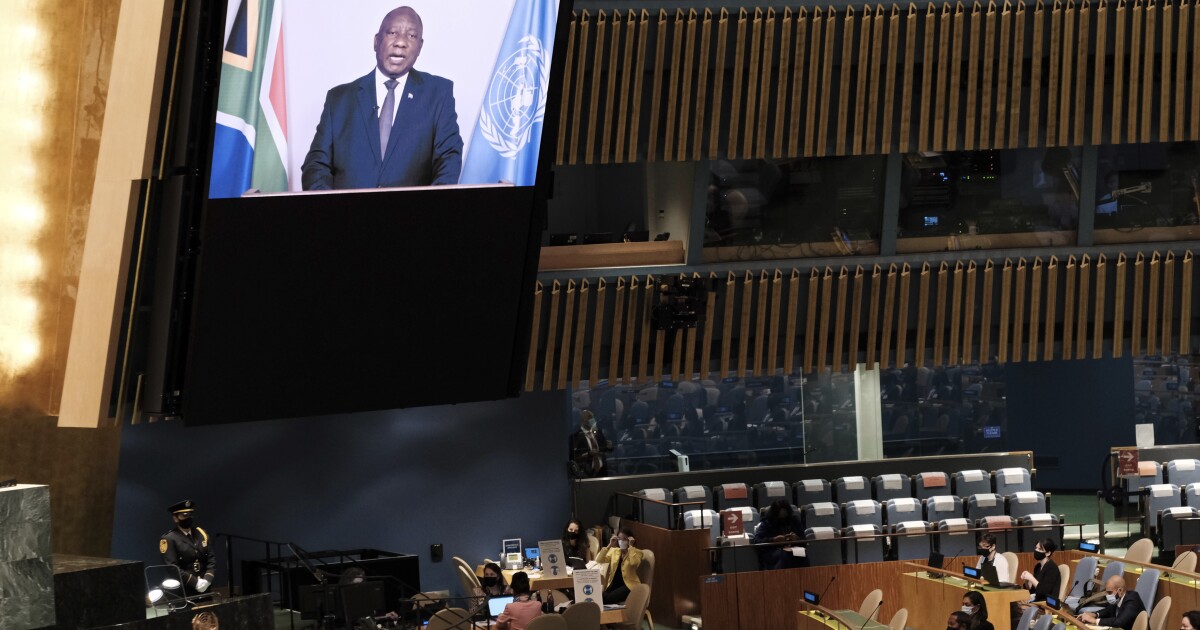The inequity in the distribution of vaccines against COVID-19 was highlighted on Thursday, when many of the African countries, whose populations have little or no access to vaccines, spoke at the annual session of heads of government and of State in the UN.
Some called on member states to relax intellectual property rights to expand vaccine production.
“No one is safe if we are not all safe,” was the common message.
“The virus does not distinguish continents, nor borders, much less nationalities or social status,” said the President of Chad, Mahamat Idriss Déby Itno, before the General Assembly.
“Countries and regions that are not vaccinated will be a source of spread and development of new variants of the virus. In this regard, we welcome the repeated calls by the Secretary General of the United Nations and the Director General of the World Health Organization in favor of access to the vaccine for all. The salvation of humanity depends on it ”.
The fight to contain the coronavirus pandemic has featured prominently in the speeches of the leaders in recent days, many of them delivered from a distance precisely because of the virus. Country after country has recognized the great disparity in access to vaccines, painting such a bleak picture that the solution has at times seemed impossible to reach.
South African President Cyril Ramaphosa called vaccines “humanity’s greatest defense against the ravages of this pandemic.”
“It is therefore very worrying that the world community has not upheld the principles of solidarity and cooperation to ensure equitable access to vaccines against COVID-19,” he said.
“It is a harsh criticism of humanity that more than 82% of the world’s vaccine doses have been purchased by rich countries, while less than 1% have gone to low-income countries.”
He and other leaders urged UN member states to support a proposed temporary waiver of certain intellectual property rights established by the World Trade Organization to allow more countries, particularly low- and middle-income countries, to produce vaccines against COVID-19.
Angolan President João Lourenço said it was “surprising to see the disparity between some nations and others regarding the availability of vaccines.”
“These disparities allow third doses to be given in some cases, while in others, such as Africa, the vast majority of the population has not even received the first dose,” Lourenço said.
The United States, Great Britain, France, Germany and Israel are among the countries that have begun to administer reinforcements or have announced plans to do so.
Namibian President Hage Geingob called it “vaccine apartheid,” a notable landmark, given the country’s own experience with apartheid when the white minority government of neighboring South Africa controlled South West Africa, named after Namibia. before its independence in 1990.
–

